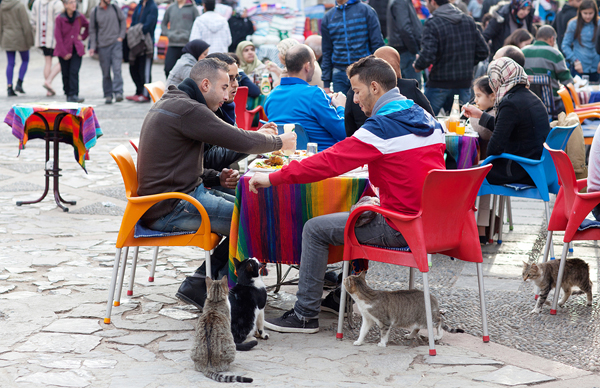
Morocco’s healthcare system is composed of both public and private healthcare options. The public healthcare system is funded by the government and is available to all citizens and legal residents. The public healthcare system is known as the National Health Insurance Fund (CNAM). Foreigners (expats and digital nomads) are allowed to use the public healthcare system in Morocco, however, it is not widely used by foreigners. Public hospitals are generally recommended for serious medical emergencies and major surgery, however, the quality of care may vary.
Morocco’s Public Healthcare System
The public healthcare system in Morocco is funded by the government and is available to all citizens and legal residents. The public healthcare system is known as the National Health Insurance Fund (CNAM). It provides access to basic medical care, including preventive care, hospitalization, and emergency services. The cost of public healthcare is relatively low, with most services costing less than 10 dirhams (about $1 USD).
Morocco’s Private Healthcare System
Morocco also has a private healthcare system, which is used primarily by expats and digital nomads. Private hospitals are generally recommended for serious medical emergencies and major surgery, as they tend to have better facilities and higher quality of care. The cost of private healthcare is significantly higher than public healthcare, with most services costing between 100 and 500 dirhams (about $10 to $50 USD).
Morocco’s Top Hospitals
Morocco has a number of well-known hospitals, both public and private. Some of the most well-known hospitals include:
- Hassan II University Hospital (public) in Casablanca
- University Hospital of Rabat (public) in Rabat
- Clinique Pasteur (private) in Casablanca
- Clinique du Parc (private) in Rabat
- Clinique Ibn Rochd (private) in Casablanca, which specializes in cardiology and neurology
Health Insurance Companies in Morocco
The most popular private health insurers in Morocco are Assurance Marocaine de l’Hospitalisation (AMH), Assurance Maladie Obligatoire (AMO), and Assurance Maladie Complémentaire (AMC). Expats and digital nomads typically use these companies, as well as specialized expat health insurance providers.
Insider Tips from Expats in Morocco: How to Navigate the Health System
“Morocco has a well-developed healthcare system, with both public and private hospitals and clinics providing a range of medical services. The public healthcare system is free for all citizens, while private healthcare is available for those who can afford it. The country has a number of highly-trained doctors and specialists, and the quality of care is generally good. In addition, Morocco has a number of specialized medical centers, such as the National Institute of Oncology, which provide specialized care for cancer patients,” commented one member living in Morocco.
“Healthcare services in Morocco are provided by both public and private institutions. The public healthcare system is funded by the government and is available to all citizens and foreign residents. The quality of public healthcare varies depending on the region, but generally it is considered to be of a good standard. Foreign residents have access to the public healthcare system, although they may need to pay a fee for certain services. Expats in Morocco can use the public healthcare system, but they may need to pay a fee for certain services. In addition, many expats opt to purchase private health insurance to cover any additional costs,” commented one member living in Morocco.
“Let’s be quite clear: public health services are massively oversubscribed by Moroccans-who all pay for private treatment if they can afford it. Morocco is the only country I have ever visited where there is an almost universal distrust of doctors, on the basis that they will invariably recommend the treatment which earns them the most money. On the other hand, my experience of a private clinic in Marrakech, after a serious accident, was very positive except that absolutely no-one spoke any English (fortunately not a problem for me). I was told in the UK that the scanner which had been used was more ‘state of the art’ than the one in my large local UK hospital & that the medical treatment I had received was up to European standards. It was, however, very expensive-so first class medical insurance is essential. Pharmacies are serious places, as in France & require properly validated prescriptions for any serious medicines,” mentioned one expat living in Morocco.


